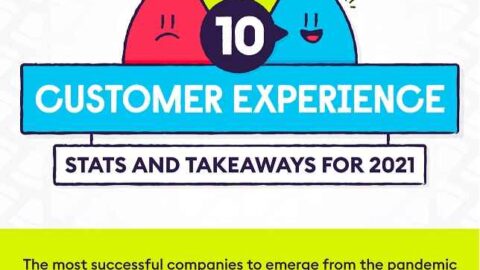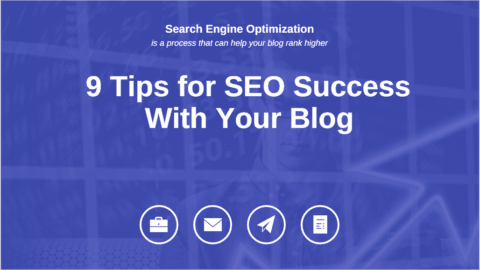Building a Successful Ecommerce Website: Crafting an Effective Strategy
E-commerce: an intriguing web of endless potential, a buoyant battlefield where success hinges on strategic prowess. Ecommerce has grown into an unequaled economic powerhouse over the years, altering commerce as we know it. The ascent isn’t capricious but anchored in strategic foundations. Hence, building e-commerce website endeavor bereft of an effective strategy is akin to sailing into a storm, unprepared. Today, let’s navigate the intricacies of formulating a potent e-commerce strategy, lighting our path toward Building Ecommerce Website.
Table of Contents
Understanding Your Market and Target Audience
Navigating the landscape of e-commerce is akin to crossing an ocean; awareness of the prevailing winds – your market trends and the desired destination – your target audience, is critical. Embark on the journey with diligent market research. Scrutinize your competition, uncovering their strategies and identifying gaps to be leveraged. Dive deep into the ebb and flow of consumer behavior, plotting the contours of the customer’s journey.
Identifying your target audience is the compass that steers the ship. The secret lies not in assuming, but in knowing – their preferences, their needs, their behaviors. Armed with this knowledge, you craft an e-commerce website that resonates, one that sings the melody your audience yearns to hear. Remember, e-commerce success isn’t found; it’s understood.
Crafting a Robust Business Plan
A robust business plan is the architectural blueprint of your e-commerce venture. It’s the foundation upon which a successful e-commerce website is built, a well-defined path leading you from idea to execution.
At the heart of this business plan is the ecommerce website checklist, an indispensable tool that ensures your strategy leaves no stone unturned. It encompasses crucial elements like your value proposition, product catalog, pricing strategy, marketing plans, and logistical considerations.
This checklist not only shapes your e-commerce platform but also creates a cogent alignment with market trends and customer needs. After all, an effective ecommerce business plan is one that fluently speaks the language of the market and resonates with the rhythm of the customer. It’s about striking the perfect balance between trend-consciousness and customer-centricity, sculpting an e-commerce journey that’s as compelling as it’s competitive.
Choosing Your E-commerce Platform
A crucial decision that might determine the course of your online business is the selection of building Ecommerce Website. Your company plays on a digital stage that determines how versatile, user-friendly, and scalable it is.
Different e-commerce systems, each showcasing its own distinctive features and advantages, are abundant on the market nowadays. It is your responsibility to sift through the many options and pick the one that best suits your objectives, available resources, and business plan. While doing this, considerations like cost, user experience, technical support, security, and customizability should all be made.
Now, here’s where you face another critical crossroad – a custom-built platform or a ready-made solution. The former provides complete control and flexibility at the cost of time and resources. The latter offers ease and speed but may limit customization. Analyze your business needs, weigh the pros and cons, and make a choice that empowers your e-commerce strategy. After all, the greatest platform isn’t always the finest platform on the market; it’s the best platform for you.
DIY vs. Hiring a Professional: Making the Right Choice
Crafting an ecommerce website is an art and science combined, demanding a diverse skill set ranging from design aesthetics to technical expertise. The path to tread — DIY or hire a professional — often stirs contemplation.
The DIY route brims with personal control and potential cost savings. You steer the wheel, dictating each aspect of your site. However, this path is treacherous if you lack the necessary skills. It can lead to suboptimal results and cost you more in the long run.
Engaging professionals, on the other hand, brings expertise and efficiency. You leverage their skills, experiences, and resources, ensuring your e-commerce website aligns with industry best practices. Companies like ecommerce development company Elogic provide end-to-end services, turning your vision into a functional, optimized e-commerce website.
Make your choice based on your skills, resources, and business objectives. Whether it’s the control of DIY or the expertise of professionals, choose the path that best propels your e-commerce success.
Implementing Your E-commerce Strategy When Building Ecommerce Website
With a robust plan and the right platform in hand, it’s time to set sail – implementation is the dawn of your e-commerce venture. Assembling the right team is the first step. Gather a crew of skilled sailors – from tech-savvy web developers and detail-oriented product managers to creative marketers and customer-centric support staff.
The core task at hand is setting up your e-commerce website. Transform your business plan into a digital reality, manifesting your e-commerce checklist into a functional, customer-friendly website. Pay attention to every detail – your product catalog, pricing, logistics, and most importantly, the customer experience.
Remember, your e-commerce website is a silent salesman. Hence, the role of SEO and digital marketing is paramount. A well-optimized website garners visibility and effective digital marketing strategies drive engagement and conversions.
Implementing your e-commerce strategy is a meticulous process of translating your vision into a digital reality. It’s about turning strategic planning into tangible results. Keep your eyes on the goal, but don’t lose sight of the journey. After all, e-commerce success is a voyage, not just a destination.
Can I build eCommerce website on my own?
How much does it cost to build a full eCommerce website?
Conclusion on Building E-commerce Website

Our exploration of the e-commerce strategy landscape plots a route for a fruitful e-commerce website. It has taught us how crucial it is to comprehend our industry, create a business strategy, pick the best platform, and make educated judgments about whether to do things ourselves or hire pros. When strategy and execution are combined, implementation is where your ecommerce vision comes to life. But keep in mind that e-commerce is not a static phenomenon. It necessitates agility and a desire to change in response to market trends and consumer wants. Continue to sail and improve, and the horizon of e-commerce success will be yours to explore.

Adhar Dhaval is experienced portfolio, program and project leader with demonstrated leadership in all phases of sales and service delivery of diverse technology solutions. He is a speaker sharing advice and industry perspective on emerging best practices in project leadership, program management, leadership and strategy. He is working for the Chair Leadership Co.











